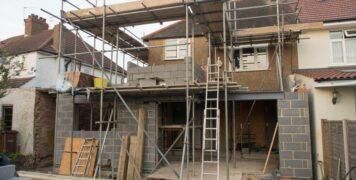Contact
020 4515 6728
info@ccameron.co.uk
Charles Cameron & Associates
Blackfriars Foundry
154-156 Blackfriars Road
London SE1 8EN
Saving to buy your first home
October 22, 2021
Information published was correct at the time of writing
Why it’s important to give yourself a realistic time frame

Property prices have never been higher, in relation to average salaries, than they are for this generation. That can make saving to buy your first home seem like an uphill battle. That’s why it’s important to give yourself a realistic time frame.
Putting saving habits in place, even if you don’t have a lot of extra income to save, will stand you in really good stead for when you are able to save more. It takes effort and determination, but it’s perfectly realistic if you’re armed with the right knowledge and can-do attitude.
HOW BIG DOES YOUR DEPOSIT NEED TO BE?
Usually, you’ll need to save at least 5% of the property value, meaning you’ll borrow the remaining 95% from a mortgage provider. The new government-backed mortgage scheme helps first-time buyers or current homeowners secure a mortgage with just a 5% deposit. First announced in this year’s Budget, the scheme is available to first-time buyers or current home-owners looking to secure a mortgage with just a 5% deposit to buy a house of up to £600,000. The government offers approved lenders the guarantee they need to provide mortgages that cover the other 95%, subject to the usual affordability checks.
HOW MUCH WILL YOU BE ABLE TO BORROW?
The amount a mortgage provider will lend you is based on several factors, but the leading factor is your annual income (plus the annual income of anyone else you are buying with). If you multiply your combined income by four, you’ll have a rough estimate of how much you might be able to borrow. So, if your annual income is £32,225 and your partner’s annual income is £27,150, your combined income is £59,375 and you might be able to borrow around £237,500, to pay for 95% of the property value. The total property value you could afford would be £250,000, if you saved a 5% deposit of £12,500.
HOW LONG WILL IT TAKE TO SAVE FOR A DEPOSIT?
Let’s assume you can borrow four times your annual salary to pay for 95% of a property. That means you need to save roughly a quarter of your annual salary to pay for 5% of the property. How long it will take you to save that amount depends on how much you put aside. If you put aside 25% out of every salary payment you receive, it will take one year. If you put aside 5% out of every salary payment, it will take five years.
HOW CAN YOU SAVE MORE QUICKLY?
Here are our top tips:
• Be consistent
Even if you start by saving just a small amount each month, doing this consistently means you will see good progress, and you can adjust your spending so you don’t miss the money.
• Set realistic goals
If you aim to save the deposit in one year but can’t really afford to save 25% of your earnings, you’ll need to dip into your savings often. This means you won’t see the results you want, which can be frustrating and discouraging.
• Cut back
If you can identify something you spend money on that’s not necessary and cut it out, that one sacrifice can help you to make quick progress. One example might be a gym membership. If you can switch to exercising for free in the park, you can cancel your direct debit to the gym and send that money straight into your savings instead.
• Earn government bonuses
With a Lifetime Individual Savings Account (LISA), you can save up to £4,000 a year and the government will add a 25% bonus to help you buy a property (assuming you’re eligible). If you and your partner each have a Lifetime ISA, and you both save the maximum each year, after three years you could earn a combined £6,000 in government bonuses.
Saving for several years can initially seem daunting. But the time will pass more quickly than you think. Stay positive and focused on your goal.



